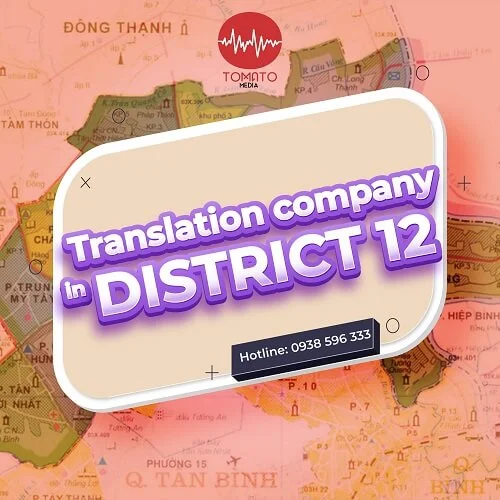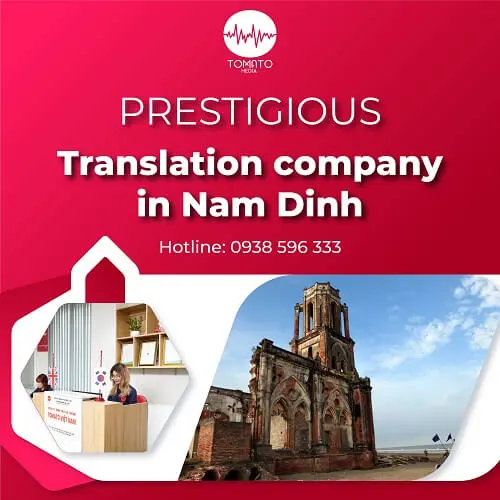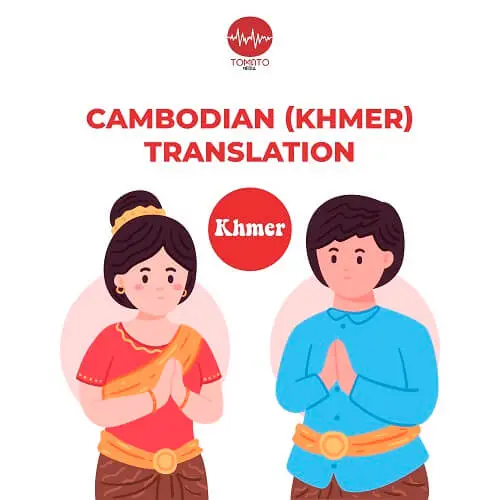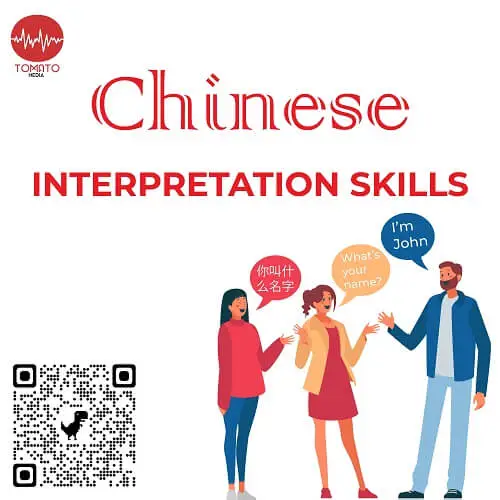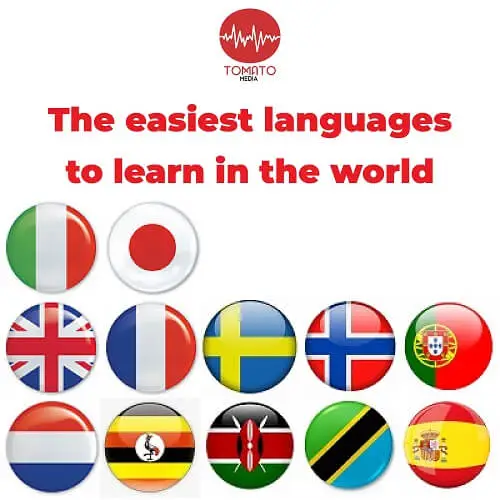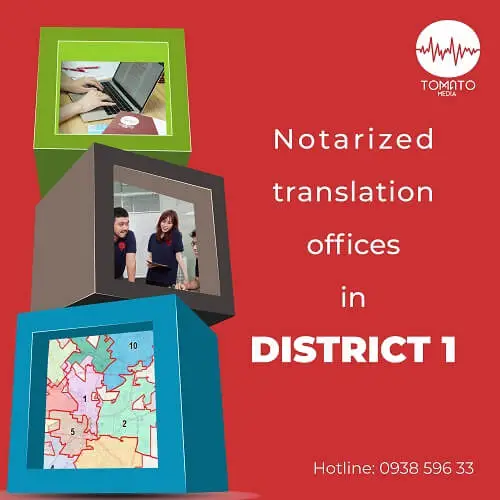Summary of reputable and quality translation and notarized translation units and companies in District 12 The following are the prestigious and high-quality companies and translation units in District 12 that we have compiled: No. Notarized translation in District 12 District 12 Translation Address 1 Translation services in District 12 – Tomato Media Translation Company 24/7 [...]
Do you know the differences between translation and interpretation?
There have been many people who misunderstand translation and interpretation as the same form of translation. In contrast, there are not many similarities between translation and translation. Let’s discover how translation is different from interpretation through the following content:
NỘI DUNG (CONTENT)
What are translation and interpretation?

To differentiate in the most basic way, we will talk about the definitions of translation and interpretation.
- In terms of translation (written translation), this is the form of translation from the source language to the target language in written form. Those practicing this form are called translators.
- For interpreters (also known as interpreters, verbal translators), this form is seen as a form of verbal translation from language A to language B. Those who practice interpretation tasks are called interpreters.
The translation is different from the interpretation but there are still many similarities
Translation and interpretation differ, but in general, these two forms still have the following similarities:
- Translation and interpretation are both intimately related to language in the translation industry.
- The main task of both is to translate one language into another.
- The common goal of translation and interpretation is to convey messages in different languages in the most accurate way possible.
- Translation and interpretation do not necessarily require the translator and interpreter to be really passionate about the language; he or she needs to have a deep understanding of the language and a high level of experience and expertise.
What is the difference between translation and interpretation? What’s the difference?
What is the difference between translation and interpretation? Besides the similarities, there are quite a lot of ways in which they differ. Here are some points for recognizing how translation and interpretation differ.
About translation methods
- Interpretation is a form of translation in verbal form.
- Translation is a form of translation in written form.
Pressure on service time
- For the interpretation, interpreters will experience a lot of pressure in terms of time. because they have to translate quickly and directly the speech of the speaker from one language to another. The interpretation process usually takes place at a specific location or event such as conferences, seminars, meetings, fairs, exhibitions, etc. In addition, interpreters also perform interpretation via phone, video call, etc.
- The translation is usually not under great pressure in terms of time; the translator is usually given a period to complete it (as requested by the client). Therefore, they will often have time to prepare, look up a translation, and compare the translation with the original upon completion.
Accuracy
- The interpretater does not require high accuracy, but it is necessary for the interpreter to fully express the meaning and information of the speech to be translated. Although some sentences may be omitted during the direct interpretation process, the essential meaning from the source language to the target language must be conveyed completely.
- Meanwhile, since translation is different from interpretation, accuracy is a must-have element of every written translation. Because the translator has been preparing for a certain period of time, the irregularities, inconsistencies, confusion, and typos in the written translation are objectionable.
One-way or two-way translation
- For interpretation tasks, an interpreter must be fluent in both the target language and the source language. Because they are often asked to translate back and forth in two directions without the support of documents or dictionary lookups.
- In terms of translation, most translators often translate one-way, such as Vietnamese—French, French—Vietnamese, or English—Vietnamese, or Vietnamese—English.
Translation support tools
- During the interpretation process, the interpreter barely uses any support tools such as dictionaries or lookup software. Although there are tools that support lookups, there is not enough time to use them because the interpretation speed is very fast. However, some types of interpretation still need support tools, such as simultaneous translation, online translation, etc.
- In these types of interpretation, interpreters often have additional tools such as headphones, microphones, laptops, projection screens, online meeting or video call apps, and a stable internet connection.
- With the translation form, translators have the ability to use quite a lot of support tools in the translation process. Examples include professional translation software, specialized dictionaries, internet search engine (Google, Bing, Baidu, etc.), file format conversion software, etc.
- The purpose is to ensure the accuracy of the translated text and fully convey the semantics and message of the original text as well as a coherent and understandable style to the recipient in the target language.
Coherence and fluency
- Interpretation is a verbal translation with an extremely fast translation speed. Therefore, the coherence and fluency of this form are usually not equal to those of a written translation.
- In contrast, translation differs from interpretation as the written version usually has a higher level of fluency and coherence because the translator has a long time to look up information and translate. This is also a very important factor for the translation industry.
Translation skills
Translators and interpreters often require specialized skills when performing their tasks.
- For example, interpretaters must have good communication skills and the ability to communicate, translate quickly, listen and memorize well, handle arising situations flexibly and professionally, be punctual, dress properly according to the regulations of the participating event, withstand high pressure, etc.
- For translators, they need to be careful in each sentence to be translated, carefully check grammar and spelling errors, have good writing skills, a thorough understanding of sentence structure, grammar, the cultural relevance of the source language and target language, etc.
The number of translation participants
- In the form of interpretation, most interpreters do independent translations, which are almost impossible to do in teams.
- The translation is different from the interpretation, this form can be done in groups. That is, documents that need to be translated with large amounts of words can be assigned to many translators and cross-checked to help ensure accuracy as well as accelerate the progress of the work’s completion.
Now that you know how translation differs from interpretation, let’s see the general requirements for interpreters and translators.
See also:
- Translation skills – Article: 5+ #Must-have translation skills of a translator
- See more information related to translations – The article: What is translation? Factors to be concerned about translation
General requirements for interpreters and translators
As mentioned above, translation and interpretation are both forms of the translation field. As a result, interpreters and translators generally still need the following skills for their jobs:
Language proficiency
Both the translator and the interpreter must use the language fluently to conduct translation work correctly.
High level of expertise and extensive specialized knowledge
Whether translating or interpreting, professional qualifications and specialized knowledge are indispensable for translation practitioners to do the best job possible.
General knowledge and a good understanding of culture
There are sentences or words that are understandable in the source language but have no meaning or concept in the target language culture. Therefore, understanding the social, political, cultural, and historical knowledge of both languages will help translators ensure the most accurate and understandable communication for the listeners or readers of the target language.
Ability to look up and update information
In both translation and interpretation professions, the translator must have good information lookup skills, to be able to quickly update the knowledge, news as well as expand the vocabulary for themselves. This will help them improve their language skills and apply the best word for the job.
Honesty and caution in the translation process
In fact, honesty, and caution qualities as well as skills that translators or interpreters must have as well as the need to regularly train throughout their careers. Because this is a mandatory element to ensure originality and keep the correct meaning of the translated sentences or words, Because an error in the translated text can lead to very dangerous consequences, especially for professions such as health, military, production engineering, etc.
Respect customer’s secrets
Similar to the skill above, respect for secrets is also a skill that needs to be forged by translators and interpreters. Because this is the basic principle that helps customers trust them with private documents for translation. Examples include documents on commercial contracts, purchase – sale contracts, wills, identification documents, medical records, product launch conferences, share transfer conferences, company acquisition negotiations, etc.
Working with a professional translation and interpretation company
And to ensure that customers have translators and interpreters who possess all the above skills, it is best to look to professional translation services. Among the reputable translation units, Tomato Media is a name that cannot be ignored, with many advantages to its services, such as:
- Translation and interpretation are provided for more than 50 language pairs belonging to over 100 different fields.
- Various types of interpretation include simultaneous interpretation, whispered interpretation, consecutive interpretation, accompanying interpretation, online interpretation, etc.
- Diverse translation forms: specialized translation, notarized translation, film script translation, thesis/dissertation translation, contract translation, tax report translation, book/newspaper translation, DTP translation, etc.
- Translation speeds of up to 20,000 words per day ensure timely compliance with handover deadlines or quick translations for urgent requests.
- The quality management system meets the international standard ISO 9001:2015, helping to optimally control the interpreting process in order to minimize errors and unnecessary risks.
- A large team of translators and interpreters with more than 100 official experts and over 3,000 collaborators in many parts of the world.
- The translators and interpreters have a bachelor’s degree or higher, at least 4 years of industry experience, and a full range of international language certificates.
- Respect for customer information confidentiality according to NDA standards
- The cost of services is transparent; there is absolutely no extra charge for the process of translation.
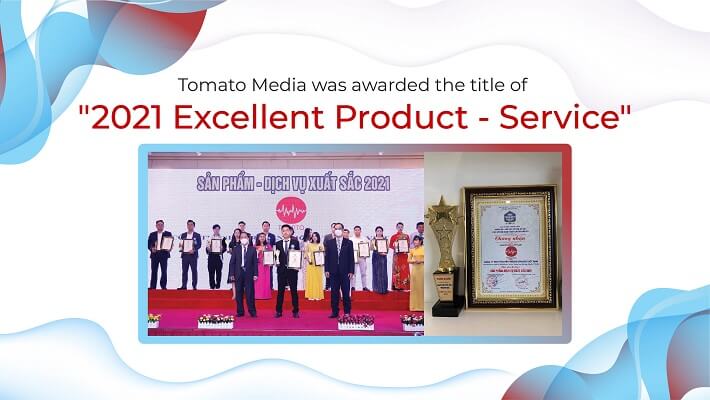
So, if you need to look for translation services, get in touch with Tomato right away by calling 0938 596 333 or sending an email to info@tomatomediavn.com. The consultants at Tomato Media will respond as soon as possible with the most complete solutions that fit both your needs and your budget.
Frequently asked questions about translation and interpretation
The following are the frequently asked questions that we have compiled regarding translation and interpreting services:
How do I know if I should hire a translator or interpreter?
The type of specialist you need depends on the specific needs of your situation. If you need to translate text, such as a document or website, you will need a translator. If you need real-time voice communication support, such as during a business meeting or legal proceedings, you will need an interpreter.
How do I find a qualified translator or interpreter?
You can find a qualified translator or interpreter by searching online, asking friends or family to recommend one, or contacting a translation or interpreting agency such as Tomato Translation. You should verify the expert’s expertise and experience before making a decision.
How much should I pay for a translator or interpreter?
The fee for a translator or interpreter will vary depending on a number of factors, such as the duration and complexity of the project, the language pair, and the expert’s experience. On average, you may have to pay between 180,000 and 5,000,000 per hour for a translator or interpreter (usually the interpreter’s fee is higher than the translator’s), although the price may be higher or lower depending on the specific requirements of your project.
What languages do translators and interpreters usually work in?
Translators and interpreters can work in many languages, including but not limited to English, Japanese, Korean, Spanish, French, German, Italian, Portuguese, Russian, Chinese, and Arabic. The availability of specialists for specific language pairs will depend on supply and demand in the market.
How long does it take to complete a translation or translation project?
The turnaround time for a translation or interpretation project depends on a number of factors, such as the length and complexity of the project, the availability of specialists, and the agreed delivery date. On average, you can expect to receive a completed translation or interpreting project within a few working days, although 24-hour urgent services can be offered for an additional fee.
Through the content of the article, Tomato hopes you have obtained useful knowledge to differentiate translations from interpretations. From there, it is helpful to select a job or learn how to look for a qualified translator or interpreter.



